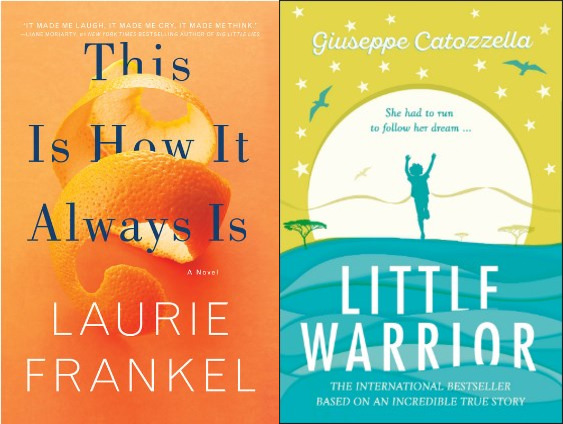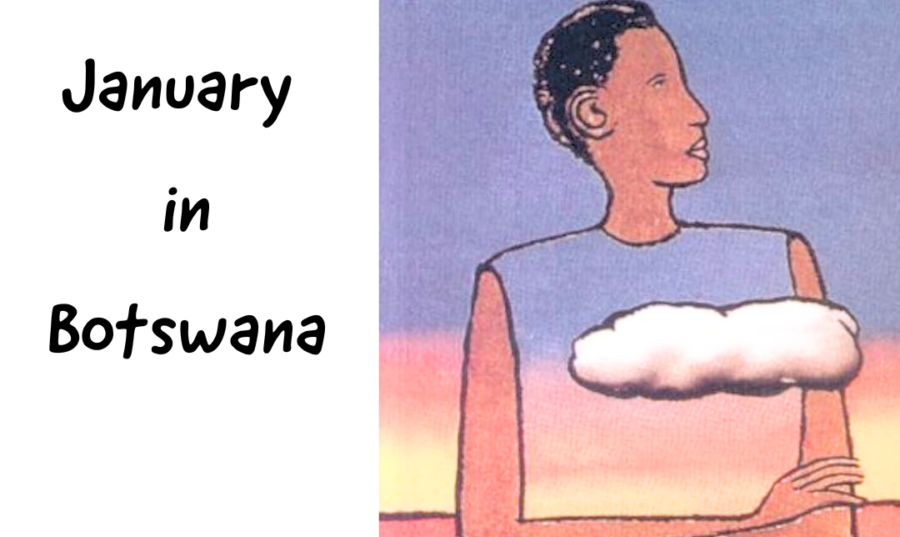In the past week, I finished reading two books. Come to think of it, both books were about the struggle with being different, and both had children as the focus. But while I thoroughly enjoyed reading one, the other was marred by an overdose of quirkiness. Here are my reviews.
Little Warrior (aka Don’t Tell Me You Are Afraid) by Giuseppe Catozzella
Based on a real personality, Little Warrior tells the heartbreaking story of Samia Omar, an athlete from Somalia who participated in the Beijing Olympics in 2008 at the very young age of 17. Since childhood Samia has loved to run. Undeterred by weather, circumstances or society, Samia runs for the love of running, as a child, and then later on trains as a serious runner to attain her ambition of being an international athlete.
Samia’s story is set in Mogadishu at a time when Somalia is racked by instability with civil wars raging in the background. Growing up in a poor but not hunger-stricken household, Samia and her best friend Ali’s favourite pastime is racing against each other. Happiness is stolen, and those moments are all too soon overpowered by the dark shadows of militant forces hanging around all corners. Samia loses some of the people closest to her in this bleak scenario, and it’s only with the support of her sister and best friend, Hodan, and her mother, that she is able to continue chasing her passion that finally gets her Olympic glory.
It is hard to believe that it is not Samia who has not written the book. Catozzella’s fine prose that balances a shrewd observation of the society with the unblemished thoughts of a child, that later on gains more depth as Samia becomes a teenager, is a delight to read.
The war never mattered much to me and Ali. Let them shoot each other in the street; it had nothing to do with us. Because the war couldn’t take away the only thing that was important: what he was to me and what I was to him.
Catozzella has combined news reports, his interviews with Samia’s family, and a dash of a writer’s imagination to write Little Warrior, which is what makes it a very personal experience. One of the most memorable passages for me was when Samia travels across for the first time, and reaches Ethiopia.
The city was much bigger than Mogadishu and also much more modern. The buildings were intact, the plaster wasn’t peeling, and the balconies weren’t falling down; to me it seemed like a miracle. That’s why I rolled down the window and smelled the crisp, clean breeze coming from outside. I needed the fresh air on my face to realize that it was all different… “The air here is scented,” I said to Teresa, who was sitting in the back with me.
“It’s not scented; it’s normal, Samia. It’s just that you don’t smell the stench of gunpowder.”
Samia’s steely grit is inspirational (the girl trains in a burkha!) and you cheer for her as she approaches the finish line of her journey. Towards the end, I couldn’t tear my eyes away from the book as I waited to see how Samia makes it through her ‘Journey’ to Italy.
Read this book to see how hope can triumph over food and water in sustaining a life, how friendships are made and lost but never forgotten, and how you can do anything you want if you only set your mind to it. Really.
Rating: 5/5
This is How It Always Is by Laurie Frankel
My first reaction when I was barely into page 3 of This is How It Always Is by Laurie Frankel was, “What kind of a book is this?” When we begin a book, most of the times, we have a sense of how this book is going to be in its tone and character. But some books, like this one, makes it difficult to get comfortable with in the beginning. Maybe it’s meant to mirror the tone of the book because it deals with such a sensitive subject.
Part fiction and part true story, This is How It Always Is is based on Frankel’s own son who wanted to be a girl. In the book, it’s 5 year old Claude who identifies himself more as a girl, and the whole book is about his extremely supportive family and their trials and tribulations while being very different from the rest of society.
It’s heartwarming in places and it does ask a lot of relevant questions that are not asked as often as they should be. For example, why is it that “when a little girl wants to wear jeans and play soccer, her parents are thrilled, but when a little boy wants to wear a dress and play with dolls, his parents send him to therapy and enroll him in a study”?
Subversive questions and progressive thoughts are all what the whole of Claude’s family is made of, including his 4 older brothers who are very protective of him. But sometimes being understanding and liberal in the way we think we should be is not really the most helpful thing as Claude points out.
“I didn’t need help being different – I am different – I needed help being the same. I needed help being like you, and no one helped me…”
But while the novel is very thought provoking with statements like these there was something that just didn’t allow me to emotionally connect with the characters. For one, there was this incredible stretch my mind was making to allow for the fact that at just 5 years of age Claude could bake, knit, and do a whole host of things that I wouldn’t generally associate with even the most precocious child. Then there is the larger than life presence of Grumwald and Princess Stefanie, the figures from the fairy tale that Penn invented, who appear suddenly and morph into near-real characters. I also did not understand the sudden digression towards Buddhism, and a few more things, which would be spoilers if I reveal here. Given the number of rave reviews this book has got, I think I am in the minority. I am all for quirkiness but I think it went a bit too far for me here.
Overall, this book is about parents and children. The rough and tumble of a house filled with kids, the joyful mess everywhere, and uncertainty that comes with children, and a host of other things family. Personally, I would go crazy if I were to be in a house with 5 kids but I can see how it can be fun too sometimes. I will end with this passage, which describes the fear and the huge responsibility that every parent has regardless of whether they are in a unique situation like Rosie and Penn or not.
You never know. You only guess. This is how it always is. You have to make these huge decisions on behalf of your kid, this tiny human whose fate and future is entirely in your hands, who trusts you to know what’s good and right and then to be able to make that happen. You never have enough information. You don’t get to see the future. And if you screw up, if with your incomplete, contradictory information you make the wrong call, well, nothing less than your child’s entire future and happiness is at stake.
Read it if you can willingly suspend disbelief for a lot of things and if you can put up with Grumwald.




Thank you for introducing the book ‘Little Warrior’ and the author Guiseppe Catozzella. will surely read it.
Thank you for visiting my site! “Little Warrior” is a beautiful book, hope you enjoy it too 🙂
Lata Nallur is a very good friend. She is the one who shared this link with me.